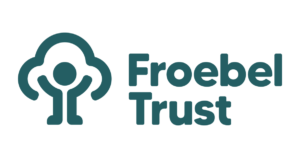Educational Theorists
Friedrich Froebel – 1782-1852
Who was he?
“I wanted to educate people to be free, to think, to take action for themselves”.
(Froebel in Lilley, 1967, p. 41)
Friedrich Froebel was a German educational theorist who was influenced by the work of Pestalozzi and Jean-Jacques Rousseau and is credited with creating the first kindergarten. An unhappy childhood led to young Froebel spending extended periods in his family’s garden, and this is where his love of nature developed. Froebel worked and set up several schools in Germany during the 19th century. He was revolutionary in his thinking, and eschewed many of the contemporary, common beliefs about bringing up children and schooling.
Froebelian principles continue into modern times and should be considered as an interconnected whole:
- Freedom with guidance: Supporting children to think for themselves, make decisions, solve problems and follow their own interests.
- Unity, connectedness and community: Froebel believed that everything in the universe was connected. This unity underpins the view of ‘the whole child’, and all parts of their life interconnecting, including all thoughts, feelings, actions and relationships. The child needs close connections between their family, kindergarten and culture to thrive (see Bronfenbrenner’s bio-ecological systems theory).
- Engaging with nature: Experience and understanding of nature are central to Froebel’s ideas. Each child in the school had a small garden plot for digging and planting. The child should be able to experience all aspects of nature including plants, animals, laws of nature (gravity and forces etc), the property of materials and transformations.
- Learning through self-activity and reflection: Viewing the child as capable, curious, and a learner who carries out their own investigations is central. Children learn through exploring, playing, taking things apart and asking questions. Helping children to reflect is important so they can consider things deeply.
- The central importance of play: Play is a key aspect of the human experience and being alive. When playing, children are active, engaged, feeling and thinking. Through play they relate to their feelings, ideas and lived experiences and make connections to the wider world. Froebel believed adults must relinquish control and allow children to play without adult direction, as this is where the greatest benefits come from.
- Creativity and the power of symbols: Creativity is the ‘essence of being human and fundamental to learning.’ (p. 16).
Children can connect with their internal and external worlds and reflect on them. Symbols allow children to see their ideas in visual form. Symbols can in place for ideas, objects and gestures, for example, using their hand as a telephone. Each child’s unique creativity should be encouraged through the creative arts, music, song and dance, which are central to the daily life of the kindergarten.
- Knowledgeable and nurturing educators: Children have a right to educated and trained educators. Relationships should be warm, respectful and intellectually engaging; with the adult sharing in the child’s delight about finding out about the world and not dominating or interfering in the learning process. Educators should carry out observations and reflect on what they see and hear.
(Froebel Principles and Practice Today, Helen Tovey, Froebel Trust)
Froebel and Block Play
We can trace the roots of what we have come to know as block play back to the 19th century and the work of Froebel (1782 – 1852). Much of Froebel’s work in educational theory centred on the idea of self-directed play, and allowing children to pursue their own innate curiosity and lead their own learning.
As part of his investigation into this, Froebel gave his cousin a set of wooden blocks, asking her to give them to her two sons to play with. Froebel further asked his cousin to observe how the boys played with these, and used her observations to help him design what came to be known as his “Gifts” – a set of plain 3-dimensional wooden blocks of different shapes (spheres, cubes, cylinders, triangular prisms and rectangular planks) and increasing complexity, which could be introduced into children’s play in a structured way, depending on their age and stage of cognitive development.
These “Gifts” were carefully designed by Froebel to introduce in a very concrete and child-friendly way certain fundamental concepts of physics, mathematics and engineering. In A Child’s Work: Freedom and Guidance in Froebel’s Educational Theory and Practise, Joachim Liebschner, (2002) states that “(Froebel) envisioned that the gifts will teach the child to use his or her environment as an educational aid; secondly, that they will give the child an indication of the connection between human life and life in nature; and finally, that they will create a bond between the adult and the child who play with them.”
Froebel’s thinking remains highly influential in early education to this day, with a great many early years settings still including amongst their resources some kind of basic construction blocks derived or adapted from the original concept of the Froebelian gifts.
For further information click the link

